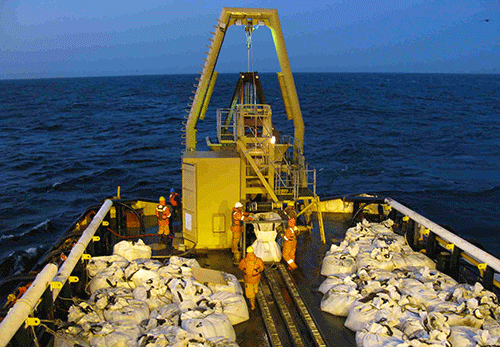After its campaigners scored victory in courts last year, marine phosphate mining is set to commence pending an environmental impact assessment of the licensed area.
In accordance with the provisions of the Environmental Management Act, Namibian Marine Phosphate (NMP) has appointed an independent environmental assessment practitioner (EAP) to manage their application and assessment process for the proposed Sandpiper project within their mining licence area (ML170) offshore Namibia.
According to a statement released yesterday, NMP will be conducting public meetings by notice for the application for an environmental clearance certificate (ECC) for ML170. Public meetings are scheduled for Windhoek on 9 February 2022 and Walvis Bay on 11 February 2022.
“NMP is taking the relevant steps to progress the Sandpiper marine phosphate project in compliance with the ruling of the High Court on 30 June 2021, which confirmed the ongoing validity of NMP’s mining licence (“ML170”),” reads the statement. NMP said the proposed project is expected to, directly and indirectly, employ over 600 Namibians for construction and operations in Walvis Bay.
Last year, Namibia’s High Court declined to invalidate a mining licence awarded to NMP in 2011 after Namibian fishing industry organisations petitioned the court to declare the company’s mining permit invalid. The organisations claimed the NMP project would threaten Namibia’s marine life.
NMP is, however, adamant the project will produce numerous economic benefits and jobs for Namibia from a phosphate-based industry.
“Marine phosphate mining and processing will create new mining operations, such as NMP’s Sandpiper project, and can also provide Namibia with the phosphate concentrate required to develop a fully integrated fertilizer industry that has the potential to make a significant positive contribution to the country’s local and national economy in the areas of job creation, poverty eradication, industrialisation and government revenue generation,” stated NMP.
– mndjavera@nepc.com.na


